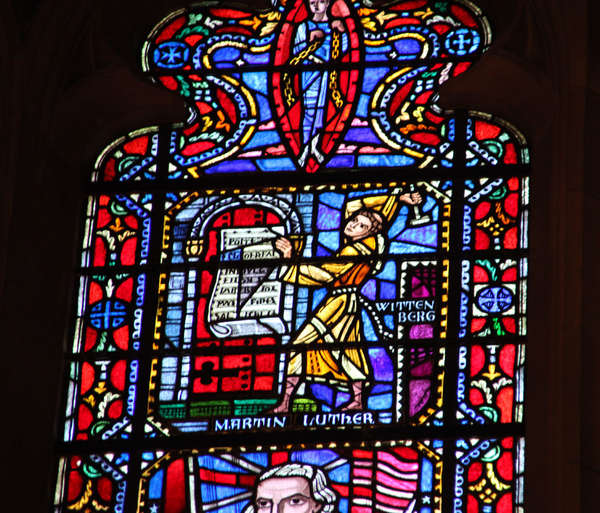Religious refugees during reformation
- 31. October 2017 - Emigration, Genealogy, General, Germany, Historical Events, Knowledge
On 31 October 1517 Martin Luther is supposed to have nailed his 95 theses against the sale of indulgences to the door of the church in Wittenberg. Today it is debatable, if this really happened, but for many the date still stands for the beginning of the reformation. It is celebrated as Reformation Day in Germany and Austria.

In any case, reformation had global consequences. For genealogists like us there is to mention that there are church books for Catholic as well as Lutheran parishes. Therefore it’s important for the research to know what religion your ancestors had. Depending on the place of residence one or the other is more probable. Furthermore, reformation was the cause for many migration movements. Our ancestors moved due to their religions – sometimes voluntarily, but often not.
Religious dissidents were often persecuted in history. That was also true for people who just wanted to reform Catholicism. For example, Jan Hus was burned during the Council of Constance in 1415. Due to reformation, for the first time since the ancient times a lot of people in Germany professed to a faith other than Catholicism, amongst them many German sovereigns. After years of conflicts, the “Augsburger Religionsfrieden” (religious peace of Augsburg) was made in 1555. This law established the peaceful coexistence of Catholics and Lutherans. Both were seen as equal, but with “ius reformandi” it was defined that a sovereign decided on the religion of his subjects. Therefore, if he changed his religion, all his people had to do so as well, at least in theory. Dissidents were forced to convert or to leave the state. Due to “ius emigrandi” heterodox persons had the right to leave a state if they wanted to find their religious happiness under a sovereign of their own faith.
But there was not only migration within Germany due to the reformation. Protestants from other nations moved to German states as well. Especially in France and Spain, they were persecuted massively.
In Germany there were even towns that had religious freedom and willingly attracted religious refugees. People who left their homes out of free will usually either had enough money or were able to bring along their economic basis, like craftsmen. Therefore positive effects on towns and states in which those people settled could be expected.
Many Protestants left Germany for foreign countries, too. America was especially popular with religious refugees. There was religious freedom and one could hope to build a new life. This was especially true for the Reformed and Anabaptists. They were still persecuted in the German states after 1555. A very popular destination within America was Pennsylvania. As soon as 1683 the first German settlement Germantown was build here. You still speak of the “Pennsylvania Dutch” and there are still large communities of Mennonites and Amish.
However, protestant parishes in America do not appear to have been very structured at the beginning. In the year 1742, the German theologian Heinrich Melchior Mühlenberg was send to Pennsylvania. He established an independent Lutheran church structure, built parish churches and schools.
The lives of our ancestors were significantly affected by reformation. Therefore its relevance for genealogy is high as well.

0 comments